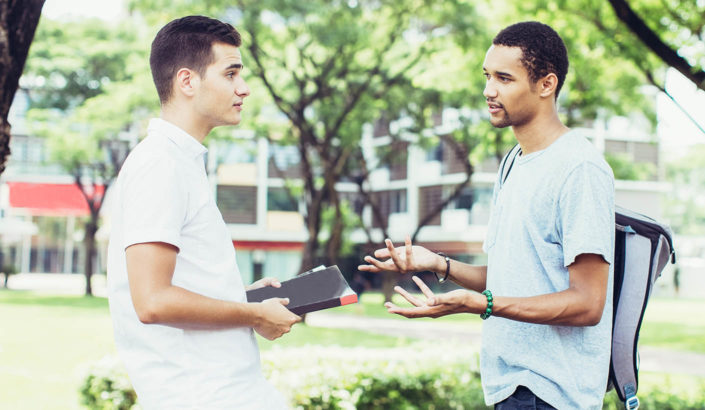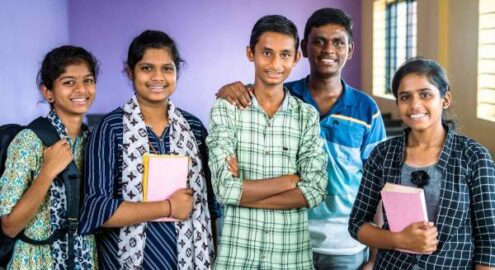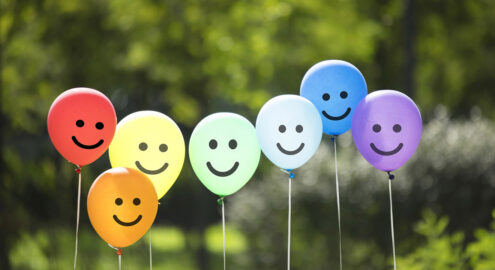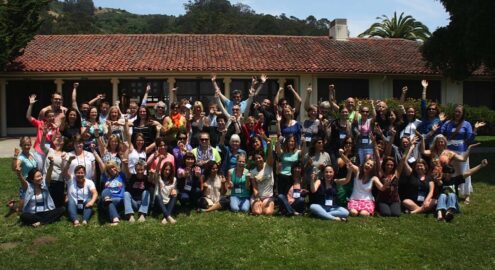What Are They?
According to the Collaborative for Academic, Social, and Emotional, Learning (CASEL), social-emotional learning (SEL) is “the process through which all young people and adults acquire and apply the knowledge, skills, and attitudes to develop healthy identities, manage emotions and achieve personal and collective goals, feel and show empathy for others, establish and maintain positive relationships, and make responsible and caring decisions.”
Social awareness and relationship skills are two of the five components that make up CASEL’s model of SEL.
Social awareness involves the ability to understand and empathize with others, particularly with people from different backgrounds than one’s own.
A history teacher cultivates students’ empathy by encouraging them to “put themselves in the shoes” of people on opposing sides of history to help them understand both how they came to their views in the first place and why certain decisions were made.
Skills that develop social awareness include:
- Identifying social cues (verbal, physical) to determine how others feel
- Taking others’ perspectives
- Demonstrating empathy and compassion
- Showing concern for the feelings of others
- Understanding and expressing gratitude
- Recognizing strengths in others
- Identifying diverse social norms, including unjust ones
- Recognizing situational demands and opportunities
- Caring about and being motivated to contribute to the well-being of one’s family, friends, school, community, the environment, and the greater good
“Relationship skills” is the ability to build positive relationships, especially with diverse individuals and groups, using a variety of methods such as active listening, and communication and conflict resolution skills. These skills also include the ability to resist pressure and to seek out and offer help.
To encourage teamwork in lab groups at the beginning of the year, a chemistry teacher has students practice positive communication skills such as listening, conflict resolution, and cooperation.
Relationship skills include:
- Initiating contact with others and cultivating friendship
- Sharing one’s thoughts and feelings (appropriately)
- Communicating effectively
- Developing positive relationships
- Demonstrating cultural humility
- Practicing teamwork and collaborative problem-solving
- Resolving conflicts constructively
- Approaching relationships with positive presuppositions
- Resisting negative social pressure
- Resisting stereotypes
- Standing up for the rights of others
- Showing leadership in groups
- Seeking or offering support and help when needed
Ultimately, social awareness and relationship skills are closely linked. For example, when students attempt to resolve a conflict between themselves (relationship skills), the process is made easier when both are able to empathize with each other (social awareness).
Why Are They Important?
Overall, research reveals time and again that students with social and emotional skills perform better academically, have stronger relationships with peers and teachers, experience greater well-being, and engage in less risky behavior. In addition, SEL skills positively impact education, employment, and mental health outcomes into adulthood.
More specifically, several components of social awareness and relationship skills show the following outcomes:
Empathy benefits students, both relationally and academically.
- Students who are empathetic are more cooperative in class, have better relationships with their teachers, and are more engaged in school.
- Increased empathy can also decrease bullying and aggression among kids and make them kinder and more inclusive toward classmates.
- Students with more empathy also tend to have higher GPAs and, eventually, greater success in college.
Cooperative learning begets cooperation.
- One study found that students who participated in more cooperative learning exercises were more likely than their peers to say they liked cooperating with other students; whereas, students who said they liked competing were significantly more likely to act aggressively toward their peers and try to do them harm.
- Students who engage in more frequent cooperative learning are more likely to report performing prosocial (kind, helpful) behavior toward their classmates.
Cross-group friendships among students can make the world a better place.
- Students with friends from different racial groups may reduce prejudice, both immediately and in the long-term.
- Positive interactions between diverse students may reduce anxiety and increase the willingness to empathize with each other.
Social learning practices are good for students.
- When students learn social skills through pedagogical methods such as cooperative learning and joint decision-making of classroom rules, they are more successful academically, show greater engagement and enjoyment in learning, and have stronger interpersonal skills.
Teaching students to resolve their own conflicts works.
- A review of the research found that conflict resolution and peer mediation programs may lead to fewer office referrals, decreased violence, and lower drop-out and suspension rates. Students who engage in these programs show greater academic achievement, a more positive perception of the school climate, increased social support, self-esteem, and well-being, and decreased victimization, anxiety, and depression.
Practices
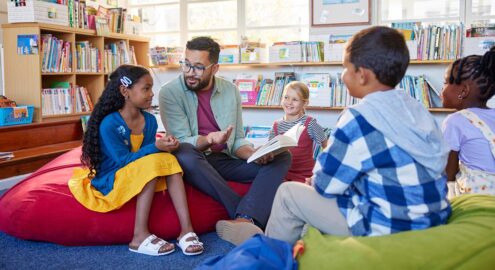
Is Fair, Fair?
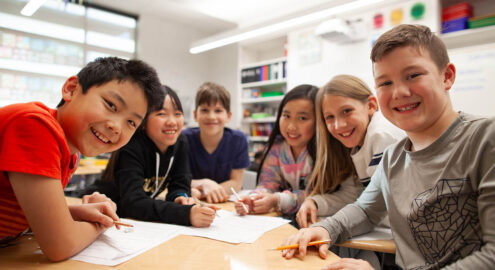
Truth or Tale?

Mindshifts: An Intellectual Humility Reflection Tool

Become an Admitter

Checking Your Perspective
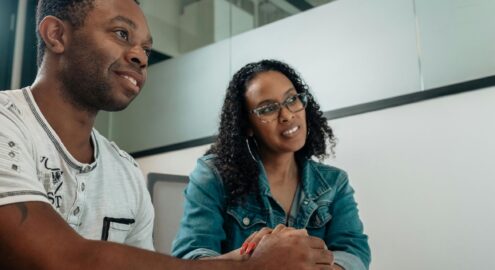
Asking Effective Interview Questions
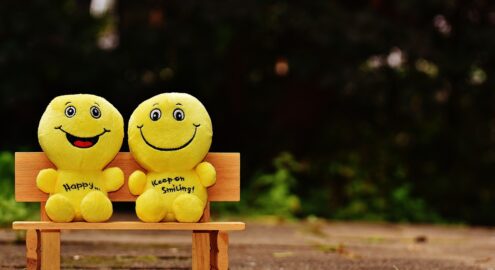
What Kind of Happy Are You?
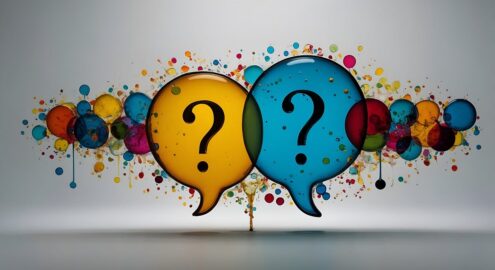
Asking Powerful Questions
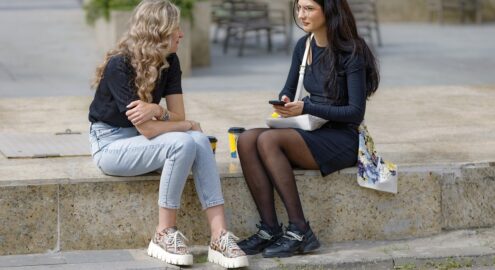
Practicing Shallow vs. Deep Curiosity
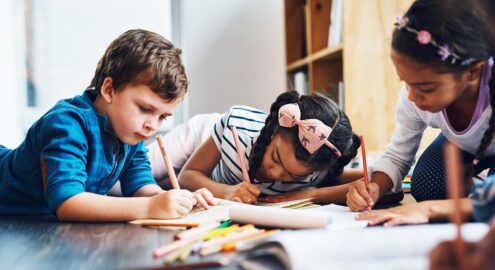
Art on Purpose

Assessing Your School Climate
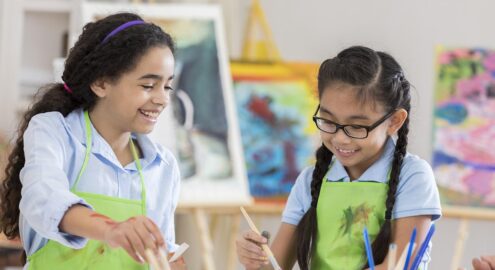
Using Art to Build Bridges
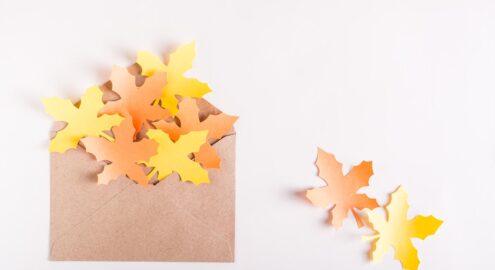
Courage Blooms

Exploring Intellectual Humility through Astronomical Discoveries
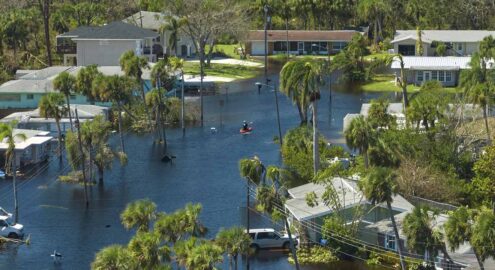
Inspiring Climate Awareness Through Gratitude
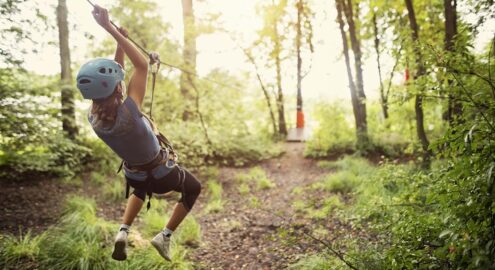
Courage Challenge
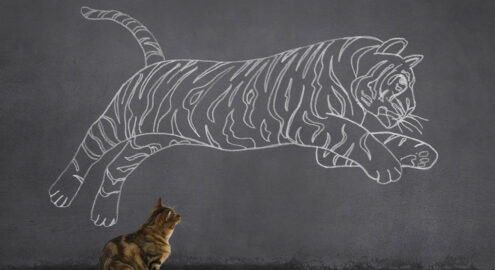
Courage Creatures
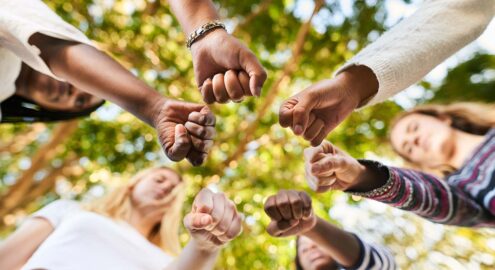
Identifying Acts of Courage

Do you want to dive deeper into the science behind our GGIE practices? Enroll in one of our online courses for educators!


